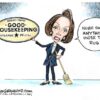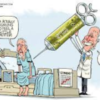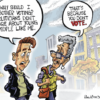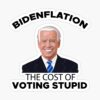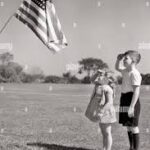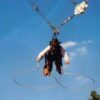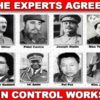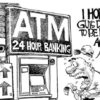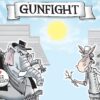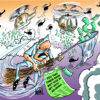Johnny Cash
![]()
Johnny Cash
106 languages

From Wikipedia, the free encyclopedia
This article is about the singer. For other uses, see Johnny Cash (disambiguation).
“John R. Cash” redirects here. For the album, see John R. Cash (album).
| Johnny Cash | |
|---|---|
| Cash in 1977 | |
| Born | J. R. Cash February 26, 1932 Kingsland, Arkansas, U.S. |
| Died | September 12, 2003 (aged 71) Nashville, Tennessee, U.S. |
| Resting place | Hendersonville Memory Gardens |
| Other names | The Man in Black |
| Occupations | Singersongwritermusicianactor |
| Years active | 1954–2003 |
| Spouse(s) | Vivian Liberto(m.1954; div. 1966) June Carter(m.1968; died 2003) |
| Children | 5, including Rosanne, Cindy and John |
| Relatives | Tommy Cash (brother) |
| Military career | |
| Allegiance | United States |
| Service/branch | United States Air Force |
| Years of service | 1950–1954 |
| Rank | Staff sergeant |
| Musical career | |
| Genres | Country[1]rockabilly[1]rock and roll[2]folk[2]blues[2]gospel[2]outlaw country[3] |
| Instrument(s) | Vocalsguitar |
| Labels | SunColumbiaMercuryAmericanHouse of CashLegacy |
| Formerly of | The Highwaymen |
| Website | johnnycash.com |
John R. Cash (born J. R. Cash; February 26, 1932 – September 12, 2003) was an American country singer-songwriter. Much of Cash’s music contained themes of sorrow, moral tribulation, and redemption, especially in the later stages of his career.[4][5] He was known for his deep, calm bass-baritone voice,[a][6] the distinctive sound of his Tennessee Three backing band characterized by train-like chugging guitar rhythms, a rebelliousness[7][8] coupled with an increasingly somber and humble demeanor,[4] free prison concerts,[9] and a trademark all-black stage wardrobe, which earned him the nickname the “Man in Black“.[b]
Born to poor cotton farmers in Kingsland, Arkansas, Cash rose to fame during the mid-1950s in the burgeoning rockabilly scene in Memphis, Tennessee, after four years in the Air Force. He traditionally began his concerts by simply introducing himself, “Hello, I’m Johnny Cash”,[c] followed by “Folsom Prison Blues“, one of his signature songs. His other signature songs include “I Walk the Line“, “Ring of Fire“, “Get Rhythm“, and “Man in Black“. He also recorded humorous numbers like “One Piece at a Time” and “A Boy Named Sue“, a duet with his future wife June called “Jackson” (followed by many further duets after their wedding), and railroad songs such as “Hey, Porter“, “Orange Blossom Special“, and “Rock Island Line“.[12] During the last stage of his career, he covered songs by contemporary rock artists; among his most notable covers were “Hurt” by Nine Inch Nails, “Rusty Cage” by Soundgarden, and “Personal Jesus” by Depeche Mode.
Cash is one of the best-selling music artists of all time, having sold more than 90 million records worldwide.[13][14] His genre-spanning music embraced country, rock and roll, rockabilly, blues, folk, and gospel sounds. This crossover appeal earned him the rare honor of being inducted into the Country Music, Rock and Roll, and Gospel Music Halls of Fame. His music career was dramatized in the 2005 biopic Walk the Line, in which Cash was portrayed by American film actor Joaquin Phoenix.
Early life
Cash’s boyhood home in Dyess, Arkansas, where he lived from the age of three in 1935 until he finished high school in 1950; the property, pictured here in 2021, is listed on the National Register of Historic Places. The home was renovated in 2011 to look as it did when Cash was a child.
Cash was born J. R. Cash in Kingsland, Arkansas, on February 26, 1932,[15][16] to Carrie Cloveree (née Rivers) and Ray Cash. He had three older siblings, named Roy, Margaret Louise, and Jack, and three younger siblings, named Reba, Joanne, and Tommy (who also became a successful country artist).[17][18] He was primarily of English and Scottish descent.[19][20][21] His paternal grandmother also claimed Cherokee ancestry, though a DNA test of Cash’s daughter Rosanne found she has no known Native American markers.[22][23] He traced his Scottish surname to 11th-century Fife after meeting with the then-laird of Falkland, Major Michael Crichton-Stuart.[24][25][26] Cash Loch and other locations in Fife bear the name of his family.[24] He is a distant cousin of British Conservative politician Sir William Cash.[27] His mother wanted to name him John and his father preferred to name him Ray, so J. R. ended up being the only compromise they could agree on.[28] When Cash enlisted in the Air Force, he was not permitted to use initials as a first name, so he changed it to John R. Cash. In 1955, when signing with Sun Records, he started using the name Johnny Cash.[8]
In March 1935, when Cash was three years old, the family settled in Dyess, Arkansas, a New Deal colony established to give poor families the opportunity to work land that they may later own.[29] From the age of five, he worked in cotton fields with his family, singing with them as they worked. The Cash farm in Dyess experienced a flood, which led Cash later to write the song “Five Feet High and Rising“.[30] His family’s economic and personal struggles during the Great Depression gave him a lifelong sympathy for the poor and working class, and inspired many of his songs.
In 1944,[31] Cash’s older brother Jack, with whom he was close, was cut almost in two by an unguarded table saw at work and died a week later.[32] According to Cash’s autobiography, he, his mother, and Jack all had a sense of foreboding about that day; his mother urged Jack to skip work and go fishing with Cash, but Jack insisted on working as the family needed the money. Cash often spoke of the guilt he felt over the incident, and spoke of looking forward to “meeting [his] brother in Heaven”.[8]
Cash’s early memories were dominated by gospel music and radio. Taught guitar by his mother and a childhood friend, Cash began playing and writing songs at the age of 12. When young, Cash had a high-tenor voice, before becoming a bass-baritone after his voice changed.[33] In high school, he sang on a local radio station. Decades later, he released an album of traditional gospel songs called My Mother’s Hymn Book. He was also significantly influenced by traditional Irish music, which he heard performed weekly by Dennis Day on the Jack Benny radio program.[34]
Cash enlisted in the Air Force on July 7, 1950.[35] After basic training at Lackland Air Force Base and technical training at Brooks Air Force Base, both in San Antonio, Texas, Cash was assigned to the 12th Radio Squadron Mobile of the U.S. Air Force Security Service at Landsberg, West Germany. He worked as a Morse code operator intercepting Soviet Army transmissions.[36] While at Landsberg he created his first band, “The Landsberg Barbarians”.[37] On July 3, 1954, he was honorably discharged as a staff sergeant, and he returned to Texas.[38] During his military service, he acquired a distinctive scar on the right side of his jaw as a result of surgery to remove a cyst.[39][40]
Career
Early career
Publicity photo for Sun Records, 1955
In 1954, Cash and his first wife Vivian moved to Memphis, Tennessee, where he had sold appliances while studying to be a radio announcer. At night, he played with guitarist Luther Perkins and bassist Marshall Grant. Perkins and Grant were known as the Tennessee Two. Cash worked up the courage to visit the Sun Records studio, hoping to get a recording contract.[41] He auditioned for Sam Phillips by singing mostly gospel songs, only to learn from the producer that he no longer recorded gospel music. Phillips was rumored to have told Cash to “go home and sin, then come back with a song I can sell”, although in a 2002 interview, Cash denied that Phillips made any such comment.[42] Cash eventually won over the producer with new songs delivered in his early rockabilly style. In 1955, Cash made his first recordings at Sun, “Hey Porter” and “Cry! Cry! Cry!“, which were released in late June and met with success on the country hit parade.
On December 4, 1956, Elvis Presley dropped in on Phillips while Carl Perkins was in the studio cutting new tracks, with Jerry Lee Lewis backing him on piano. Cash was also in the studio, and the four started an impromptu jam session. Phillips left the tapes running and the recordings, almost half of which were gospel songs, survived. They have since been released under the title Million Dollar Quartet. In Cash: the Autobiography, Cash wrote that he was the farthest from the microphone and sang in a higher pitch to blend in with Elvis.
Cash’s next record, “Folsom Prison Blues”, made the country top five. His “I Walk the Line” became number one on the country charts and entered the pop charts top 20. “Home of the Blues” followed, recorded in July 1957. That same year, Cash became the first Sun artist to release a long-playing album. Although he was Sun’s most consistently selling and prolific artist at that time, Cash felt constrained by his contract with the small label. Phillips did not want Cash to record gospel and was paying him a 3% royalty rather than the standard rate of 5%. Presley had already left Sun and, Phillips was focusing most of his attention and promotion on Lewis.
In 1958, Cash left Phillips to sign a lucrative offer with Columbia Records. His single “Don’t Take Your Guns to Town” became one of his biggest hits, and he recorded a collection of gospel songs for his second album for Columbia. However, Cash left behind a sufficient backlog of recordings with Sun that Phillips continued to release new singles and albums featuring previously unreleased material until as late as 1964. Cash was in the unusual position of having new releases out on two labels concurrently. Sun’s 1960 release, a cover of “Oh Lonesome Me“, made it to number 13 on the C&W charts.[d]
The Tennessee Three with Cash in 1963
Early in his career, Cash was given the teasing nickname “the Undertaker” by fellow artists because of his habit of wearing black clothes. He said he chose them because they were easier to keep looking clean on long tours.[43]
In the early 1960s, Cash toured with the Carter Family, which by this time regularly included Mother Maybelle‘s daughters, Anita, June, and Helen. June later recalled admiring him from afar during these tours. In the 1960s, he appeared on Pete Seeger‘s short-lived television series Rainbow Quest.[44] He also acted in, and wrote and sang the opening theme for, a 1961 film entitled Five Minutes to Live, later re-released as Door-to-door Maniac.
Cash’s career was handled by Saul Holiff, a London, Ontario, promoter. Their relationship was the subject of Saul’s son’s biopic My Father and the Man in Black.[45]
Outlaw image
As his career was taking off in the late 1950s, Cash started drinking heavily and became addicted to amphetamines and barbiturates. For a brief time, he shared an apartment in Nashville with Waylon Jennings, who was deeply addicted to amphetamines. Cash would use the stimulants to stay awake during tours. Friends joked about his “nervousness” and erratic behavior, many ignoring the warning signs of his worsening drug addiction.
Although he was in many ways spiraling out of control, Cash could still deliver hits due to his frenetic creativity. His rendition of “Ring of Fire” was a crossover hit, reaching number one on the country charts and entering the top 20 on the pop charts. It was originally performed by June’s sister, but the signature mariachi-style horn arrangement was provided by Cash.[46] He said that it had come to him in a dream. Vivian Liberto claimed a different version of the origins of “Ring of Fire”. In her book, I Walked the Line: My Life with Johnny, Liberto says that Cash gave Carter half the songwriting credit for monetary reasons.[47]
In June 1965, Cash’s camper caught fire during a fishing trip with his nephew Damon Fielder in Los Padres National Forest in California, triggering a forest fire that burned several hundred acres and nearly caused his death.[48][49] Cash claimed that the fire was caused by sparks from a defective exhaust system on his camper, but Fielder thinks that Cash started a fire to stay warm and in his drugged condition failed to notice the fire getting out of control.[50] When the judge asked Cash why he did it, Cash said, “I didn’t do it, my truck did, and it’s dead, so you can’t question it.”[51] The fire destroyed 508 acres (206 ha), burned the foliage off three mountains and drove off 49 of the refuge’s 53 endangered California condors.[52] Cash was unrepentant and claimed, “I don’t care about your damn yellow buzzards.”[53] The federal government sued him and was awarded $125,172. Cash eventually settled the case and paid $82,001.[54]
Although Cash cultivated a romantic outlaw image, he never served a prison sentence. Despite landing in jail seven times for misdemeanors, he stayed only one night on each stay. On May 11, 1965, he was arrested in Starkville, Mississippi, for trespassing late at night onto private property to pick flowers. (He used this to write the song “Starkville City Jail”, which he discussed on his live At San Quentin album.)[55] While on tour that year, he was arrested October 4 in El Paso, Texas, by a narcotics squad. The officers suspected he was smuggling heroin from Mexico, but found instead 688 Dexedrine capsules (amphetamines) and 475 Equanil (sedatives or tranquilizers) tablets hidden inside his guitar case. Because the pills were prescription drugs rather than illegal narcotics, Cash received a suspended sentence. He posted a $1,500 bond and was released until his arraignment.[56]
In this period of the mid-1960s, Cash released a number of concept albums. His Bitter Tears (1964) was devoted to spoken word and songs addressing the plight of Native Americans and mistreatment by the government. While initially reaching charts, this album met with resistance from some fans and radio stations, which rejected its controversial take on social issues. In 2011, a book was published about it, leading to a re-recording of the songs by contemporary artists and the making of a documentary film about Cash’s efforts with the album. This film was aired on PBS in February and November 2016. His Sings the Ballads of the True West (1965) was an experimental double record, mixing authentic frontier songs with Cash’s spoken narration.
Reaching a low with his severe drug addiction and destructive behavior, Cash was divorced from his first wife and had performances cancelled, but he continued to find success. In 1967, Cash’s duet with June Carter, “Jackson“, won a Grammy Award.[57]
Cash was last arrested in 1967 in Walker County, Georgia, after police found he was carrying a bag of prescription pills and was in a car accident. Cash attempted to bribe a local deputy, who turned the money down. He was jailed for the night in LaFayette, Georgia. Sheriff Ralph Jones released him after giving him a long talk, warning him about the danger of his behavior and wasted potential. Cash credited that experience with helping him turn around and save his life. He later returned to LaFayette to play a benefit concert; it attracted 12,000 people (the city population was less than 9,000 at the time) and raised $75,000 for the high school.[58] Reflecting on his past in a 1997 interview, Cash noted: “I was taking the pills for awhile, and then the pills started taking me.”[59] June, Maybelle, and Ezra Carter moved into Cash’s mansion for a month to help him get off drugs. Cash proposed onstage to June on February 22, 1968, at a concert at the London Gardens in London, Ontario, Canada. The couple married a week later (on March 1) in Franklin, Kentucky. She had agreed to marry Cash after he had “cleaned up.”[60]
Cash’s journey included rediscovery of his Christian faith. He took an “altar call” in Evangel Temple, a small church in the Nashville area, pastored by Reverend Jimmie Rodgers Snow, son of country music legend Hank Snow. According to Marshall Grant, though, Cash did not completely stop using amphetamines in 1968. Cash did not end all drug use until 1970, staying drug-free for a period of seven years. Grant claims that the birth of Cash’s son, John Carter Cash, inspired Cash to end his dependence.[61]
Cash began using amphetamines again in 1977. By 1983, he was deeply addicted again and became a patient at the Betty Ford Clinic in Rancho Mirage for treatment. He stayed off drugs for several years, but relapsed. By 1989, he was dependent and entered Nashville’s Cumberland Heights Alcohol and Drug Treatment Center. In 1992, he started care at the Loma Linda Behavioral Medicine Center in Loma Linda, California, for his final rehabilitation treatment. (Several months later, his son followed him into this facility for treatment.)[62][63]
Folsom and other prison concerts
Cash began performing concerts at prisons in the late 1950s. He played his first famous prison concert on January 1, 1958, at San Quentin State Prison.[64] These performances led to a pair of highly successful live albums, Johnny Cash at Folsom Prison (1968) and Johnny Cash at San Quentin (1969). Both live albums reached number one on Billboard country album music and the latter crossed over to reach the top of the Billboard pop album chart. In 1969, Cash became an international hit when he eclipsed even The Beatles by selling 6.5 million albums.[65] In comparison, the prison concerts were much more successful than his later live albums such as Strawberry Cake recorded in London and Live at Madison Square Garden, which peaked at numbers 33 and 39 on the album charts, respectively.
The Folsom Prison record was introduced by a rendition of his “Folsom Prison Blues” while the San Quentin record included the crossover hit single “A Boy Named Sue“, a Shel Silverstein-penned novelty song that reached number one on the country charts and number two on the U.S. top-10 pop charts.
Cash performed at the Österåker Prison in Sweden in 1972. The live album På Österåker (At Österåker) was released in 1973. “San Quentin” was recorded with Cash replacing “San Quentin” with “Österåker”. In 1976, a concert at Tennessee State Prison was videotaped for TV broadcast, and received a belated CD release after Cash’s death as A Concert Behind Prison Walls.
Activism for Native Americans
Cash used his stardom and economic status to bring awareness to the issues surrounding the Native American people.[66] Cash sang songs about indigenous humanity in an effort to confront the U.S. government. Many non-Native Americans stayed away from singing about these things.[67] In 1965, Cash and June Carter appeared on Pete Seeger‘s TV show, Rainbow Quest, on which Cash explained his start as an activist for Native Americans:
In ’57, I wrote a song called “Old Apache Squaw” and then forgot the so-called Indian protest for a while, but nobody else seemed to speak up with any volume of voice.[68]
Columbia Music, the label for which Cash was recording then, was opposed to putting the song on his next album, considering it “too radical for the public”.[69] Cash singing songs of Indian tragedy and settler violence went radically against the mainstream of country music in the 1950s, which was dominated by the image of the righteous cowboy who simply makes the native’s soil his own.[70]
In 1964, coming off the chart success of his previous album I Walk the Line, he recorded the aforementioned album Bitter Tears: Ballads of the American Indian.
We’re Still Here: Johnny Cash’s Bitter Tears Revisited, a documentary by Antonino D’Ambrosio (author of A Heartland and a Guitar: Johnny Cash and the


